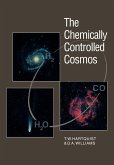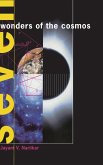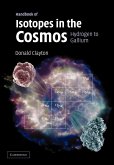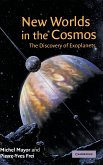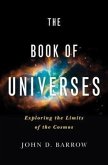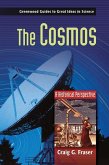Molecules in the early Universe acted as natural temperature regulators, keeping the primordial gas cool and, in turn, allowing galaxies and stars to be born. Even now, such similarly simple chemistry continues to control a wide variety of the exotic objects that populate our cosmos. What are the tools of the trade for the cosmic chemist? What can they teach us about the Universe we live in? These are the questions answered in this engaging and informative guide, The Chemically Controlled Cosmos. In clear, non-technical terms, and without formal mathematics, we learn how to study and understand the behaviour of molecules in a host of astronomical situations. We study the secretive formation of stars deep within interstellar clouds, the origin of our own Solar System, the cataclysmic deaths of many massive stars that explode as supernovae, and the hearts of active galactic nuclei, the most powerful objects in the Universe. We are given an accessible introduction to a wealth of astrophysics, and an understanding of how cosmic chemistry facilitates the investigation of many of the most exciting questions concerning astronomy today.
Table of contents:
Preface; 1. A brief history; 2. Setting the astronomical scene; 3. The tools of the trade; 4. Chemistry after the Big Bang; 5. Interstellar clouds - the birth places of stars; 6. Star formation; 7. The solar system at birth; 8. Stellar winds and outflows; 9. Astronomical masers near bright stars; 10. Supernovae: fairly big bang; 11. Active galaxies; 12. Epilogue; Index.
Simple chemistry governs a host of the exotic objects that populate our cosmos. What are the tools of the cosmic chemist? What can they teach us about the Universe we live in? These are the questions answered in this engaging and informative guide. In clear, non-technical terms, involving no formal mathematics, we are introduced to a wealth of the most exciting astrophysics studied today, and to the role of cosmic chemistry in the Universe.
A clear, non-technical guide to a wealth of the most exciting astrophysics studied today, and to the role of cosmic chemistry in the Universe.
Hinweis: Dieser Artikel kann nur an eine deutsche Lieferadresse ausgeliefert werden.
Table of contents:
Preface; 1. A brief history; 2. Setting the astronomical scene; 3. The tools of the trade; 4. Chemistry after the Big Bang; 5. Interstellar clouds - the birth places of stars; 6. Star formation; 7. The solar system at birth; 8. Stellar winds and outflows; 9. Astronomical masers near bright stars; 10. Supernovae: fairly big bang; 11. Active galaxies; 12. Epilogue; Index.
Simple chemistry governs a host of the exotic objects that populate our cosmos. What are the tools of the cosmic chemist? What can they teach us about the Universe we live in? These are the questions answered in this engaging and informative guide. In clear, non-technical terms, involving no formal mathematics, we are introduced to a wealth of the most exciting astrophysics studied today, and to the role of cosmic chemistry in the Universe.
A clear, non-technical guide to a wealth of the most exciting astrophysics studied today, and to the role of cosmic chemistry in the Universe.
Hinweis: Dieser Artikel kann nur an eine deutsche Lieferadresse ausgeliefert werden.

